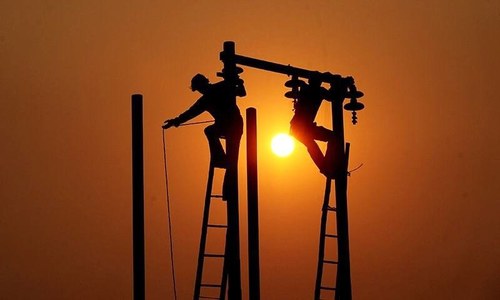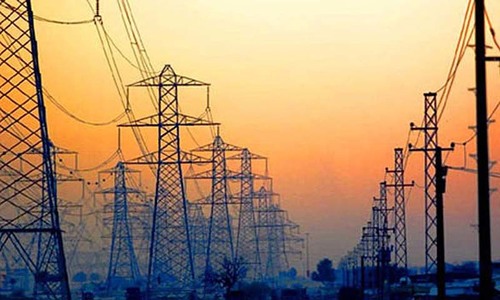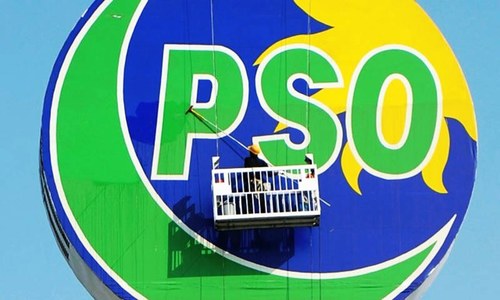ISLAMABAD: Pakistan’s power sector receivables have crossed the Rs684 billion-mark, the highest they have ever been, despite a drastic 27 per cent cut in generation costs.
On top of that, the amount of the power sector’s payables also surged 44pc to Rs300bn on June 30, 2016, up from Rs207bn three years ago. This rise comes despite the Rs480bn paid by the government to power producers and fuel suppliers.
Receivables include amounts outstanding against power sector consumers and recoverable by the distribution companies, while their payables are amounts owed to independent power producers (IPPs), fuel suppliers and the Water and Power Development Authority.
These figures were reported by the Pakistan Electric Power Company (Pepco) — an umbrella organisation of all public-sector power companies — to the Prime Minister Office and the Ministry of Water and Power in its comprehensive ‘Financial Review 2015-16’.
Receivables cross Rs684bn; power sector owes Rs300bn to IPPs, fuel companies and Wapda
On the positive side, Pepco reported an improvement in the recovery rate to 94.4pc for billed amounts of FY2015-16, compared with 89.2pc recovery in the same period last year. It also reported a decline in overall system losses from 18.7pc last year to 17.9pc in June this year.
The total payables peaked at Rs461bn by the end of 2012, before the government picked up circular debt of Rs480bn in June and July 2013. The number dropped to Rs207.2bn as a result of this settlement, which was criticised by opposition parties for being in violation of a statutory pre-audit requirement.
The power sector has to pay Rs173bn to IPPs, Rs76bn to oil companies, Rs19bn to banks in debt servicing costs and Rs32bn to various generation and transmission companies as of June 30, 2016.
The report said that power sector receivables had maintained an upward trajectory since 2011, when they stood at Rs286bn. These outstanding amounts stood at Rs411bn on June 30, 2013 — soon after the PML-N came to power — and kept rising, slowly but steadily.
For example, receivables had reached Rs513bn by end of June 2014, an increase of 25pc. This was followed by a 23pc increase to Rs633bn in 2015 and finally Rs684.06bn by the end of June this year.
Ironically, outstanding bills more than doubled from Rs197bn in 2012 to Rs423bn in June this year, despite the fact that the power supply to consumers is disconnected after 35 days of non-payment.
The liabilities against the federal government on account of various consumer categories and share in subsidies stood at Rs17bn in June 2016, while Sindh topped the list of provinces with its outstanding dues of about Rs74bn. Punjab’s outstanding power bills amount to Rs5.7bn , KP’s Rs880 million, and Balochistan owes Rs18.6bn.
AJK owes around Rs65bn, K-Electric Rs46bn and Fata Rs21bn.
The consumer share of agricultural tubewells in Balochistan has been booked at Rs127 billion, with little chance of recovery unless the matter is settled between the federal and provincial governments. Similarly, an amount of Rs19 billion is attributed to KP on account of delayed tariff increase due to pendency of court cases and is unlikely to be recovered.
The government has been also informed that the fuel cost of power generation gradually dropped from a peak of Rs10.14 per unit at the end of FY2013-14 to Rs7.42 per unit, a 26.82pc decrease due mainly to a fall in international oil prices.
For example, the average fuel cost of power generation from furnace oil-based plants dropped from Rs18.84 per cent in 2012-13 to Rs10.90 per unit in 2015-16. Similarly, the fuel cost of diesel power generation also came down from Rs28.41 in 2013-14 to Rs17.96 per unit in June this year.
The cost of gas-based plants, on the other hand, increased from Rs6.86 per unit in June 2013 to Rs9.07 per unit at present. The cost of hydropower also increased from Rs1.50 per unit three years ago to Rs2.15 per unit now even though the share of hydropower generation remained static at around 34pc in the overall energy mix.
The report said the recovery rate of five distribution companies in Punjab had improved from 97.3pc a year ago to 98.2pc. The recovery rate of its four companies in Lahore, Gujranwala, Multan and Faisalabad amounted to 99.2-100pc. The Islamabad Electric Supply Company, often dubbed the most efficient in the country, achieved a 91pc recovery rate.
The Quetta Electric Supply Company showed a substantial turnaround, with recoveries galloping to 72pc this year against 33pc a year ago. Recoveries by the Peshawar Electric Supply Company rose 0.5pc to 88.5pc, while the recovery rate of the Hyderabad and Sukkur distribution companies rose by 6pc and 3pc to 72pc and 55pc, respectively..
The report said that power companies had, cumulatively, collected Rs942 billion from consumers in FY2015-16 against total billing of Rs997 billion, a recovery rate of 94.5pc. Last year, this number stood at Rs894 billion against billing of Rs1.103 trillion.
Published in Dawn, August 22nd, 2016













































